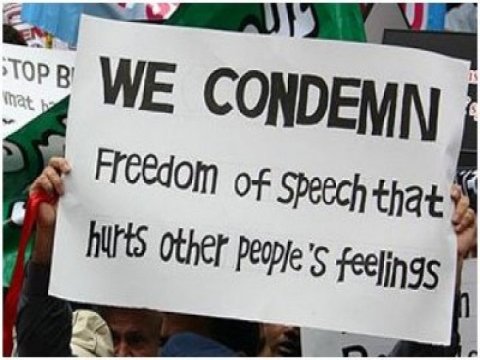

The scope of permissible politics would thus be narrowed to concerns about apparently neutral subjects such as budgets and taxes-although even these might not remain untouched. All honest discussions of these and other topics, advocates allege, harm the self-respect of marginalized groups.
HATE SPEECH FREE
For example, free and open political deliberation and discussions regarding criminality, immigration, and the health of the traditional family would be effectively silenced. Such laws would severely restrict political deliberation on any number of critical issues confronting the country. Rather, many restriction advocates seek to outlaw speech that they believe causes “harm”-defined in the broadest, most malleable ways-to select, so-called marginalized or oppressed groups. The First Amendment, we should recall, does not protect speech that intentionally incites imminent violence or lawlessness. Nor are these proposals about preventing physical violence against segments of the population. But today’s proposals to ban “hate speech” are not at bottom about getting rid of racial epithets or Holocaust denial. We should aspire to be courteous toward others. Indeed, restriction advocates admit that America’s understanding of speech “comes into tension with the aspiration of equal dignity.” REF They want to eliminate the former to make way for the latter.ĭecent people are rightly unsettled by gratuitously vile words directed at undeserving fellow citizens. Or it is the equal self-respect and dignity of marginalized and self-created identities, in which case these must not only be publicly affirmed and celebrated, but also shielded from (even well-meaning) scrutiny and criticism, called “speech violence” or “hate speech.” These two views cannot coexist. Either it is political liberty, in which case the freedom of speech is essential for presumptively rational citizens to rule themselves politically and to pursue the truth through science, philosophy, or religion. The debate over “hate speech” reveals a fundamental disagreement about the purpose of America. If Americans are to resist this growing movement, they must understand the arguments, the demands, and the consequences of outlawing “hate speech.” No laws of history dictate that America must submit and follow this path. In the words of Mari Matsuda, an influential professor at the University of Hawaii Law School, “ormal criminal and administrative sanction-public as opposed to private prosecution-is also an appropriate response to racist speech.” REF Perhaps most surprising, legal precedents that would bring this revolution fully into existence in America are already embedded in two areas of our legal system: antidiscrimination and harassment laws, and Supreme Court rulings favoring sexual liberation that are based on a new view of “dignity.” Leading restriction advocates want not only to banish “hate speech,” but also to criminalize it. These fronts promises to grow in size, strength, and confidence in the coming years. So are America’s colleges and universities more and more governed by an aggressive chorus of students, faculty, and administrators who demand and impose speech codes. Meanwhile in America, Members of Congress issue their support for speech restrictions, and Big Tech’s digital oligarchs, enjoying a disproportionate power over society, continue to impose speech restrictions in exchange for access to their platforms. Secretary-General, “the United Nations must confront hate speech at every turn.” REF The United Nations relentlessly pressures the remaining holdouts to follow suit: “As a matter of principle,” says the U.N. America is the only Western nation that does not criminalize “hate speech.” Canada, Australia, New Zealand, and most nations of Europe already do so.


 0 kommentar(er)
0 kommentar(er)
